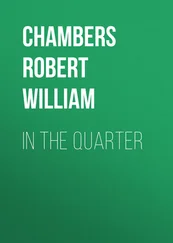Robert Chambers - The Younger Set
Здесь есть возможность читать онлайн «Robert Chambers - The Younger Set» — ознакомительный отрывок электронной книги совершенно бесплатно, а после прочтения отрывка купить полную версию. В некоторых случаях можно слушать аудио, скачать через торрент в формате fb2 и присутствует краткое содержание. Жанр: foreign_prose, foreign_antique, на английском языке. Описание произведения, (предисловие) а так же отзывы посетителей доступны на портале библиотеки ЛибКат.
- Название:The Younger Set
- Автор:
- Жанр:
- Год:неизвестен
- ISBN:нет данных
- Рейтинг книги:3 / 5. Голосов: 1
-
Избранное:Добавить в избранное
- Отзывы:
-
Ваша оценка:
- 60
- 1
- 2
- 3
- 4
- 5
The Younger Set: краткое содержание, описание и аннотация
Предлагаем к чтению аннотацию, описание, краткое содержание или предисловие (зависит от того, что написал сам автор книги «The Younger Set»). Если вы не нашли необходимую информацию о книге — напишите в комментариях, мы постараемся отыскать её.
The Younger Set — читать онлайн ознакомительный отрывок
Ниже представлен текст книги, разбитый по страницам. Система сохранения места последней прочитанной страницы, позволяет с удобством читать онлайн бесплатно книгу «The Younger Set», без необходимости каждый раз заново искать на чём Вы остановились. Поставьте закладку, и сможете в любой момент перейти на страницу, на которой закончили чтение.
Интервал:
Закладка:
"I could not make you love me," he repeated; "I did not know how."
"Because you yourself had not learned how. But—at times—now looking back to it—I think—I think we were very near to it—at moments. . . . And then that dreadful dream closed down on us again. . . . And then—the end."
"If you could have held out," he breathed; "if I could have helped! It was I who failed you after all!"
For a long while they sat in silence; Mrs. Ruthven's white furs now covered her face. At last the carriage stopped.
As he sprang to the curb he became aware of another vehicle standing in front of the house—a cab—from which Mrs. Ruthven's maid descended.
"What is she doing here?" he asked, turning in astonishment to Mrs. Ruthven.
"Phil," she said in a low voice, "I knew you had taken this place. Gerald told me. Forgive me—but when I saw you under the awning it came to me in a flash what to do. And I've done it. . . . Are you sorry?"
"No. . . . Did Gerald tell you that I had taken this place?"
"Yes; I asked him."
Selwyn looked at her gravely; and she looked him very steadily in the eyes.
"Before I go—may I say one more word?" he asked gently.
"Yes—if you please. Is it about Gerald?"
"Yes. Don't let him gamble. . . . You saw the signature on that check?"
"Yes, Phil."
"Then you understand. Don't let him do it again."
"No. And—Phil?"
"What?"
"That check is—is deposited to your credit—with the rest. I have never dreamed of using it." Her cheeks were afire again, but with shame this time.
"You will have to accept it, Alixe."
"I cannot."
"You must! Don't you see you will affront Gerald? He has repaid me; that check is not mine, nor is it his."
"I can't take it," she said with a shudder. "What shall I do with it?"
"There are ways—hospitals, if you care to. . . . Good-night, child."
She stretched out her gloved arm to him; he took her hand very gently and retained it while he spoke.
"I wish you happiness," he said; "I ask your forgiveness."
"Give me mine, then."
"Yes—if there is anything to forgive. Good-night."
"Good-night—boy," she gasped.
He turned sharply, quivering under the familiar name. Her maid, standing in the snow, moved forward, and he motioned her to enter the brougham.
"Home," he said unsteadily; and stood there very still for a minute or two, even after the carriage had whirled away into the storm. Then, looking up at the house, he felt for his keys; but a sudden horror of being alone arrested him, and he stepped back, calling out to his cabman, who was already turning his horse's head, "Wait a moment; I think I'll drive back to Mrs. Gerard's. . . . And take your time."
It was still early—lacking a quarter of an hour to midnight—when he arrived. Nina had retired, but Austin sat in the library, obstinately plodding through the last chapters of a brand-new novel.
"This is a wretched excuse for sitting up," he yawned, laying the book flat on the table, but still open. "I ought never to be trusted alone with any book." Then he removed his reading glasses, yawned again, and surveyed Selwyn from head to foot.
"Very pretty," he said. "Well, how are the yellow ones, Phil? Or was it all débutante and slop-twaddle?"
"Few from the cradle, but bunches were arriving for the dance as I left."
"Eileen went at half-past eleven."
"I didn't know she was going," said Selwyn, surprised.
"She didn't want you to. The Playful Kitten business, you know—frisks apropos of nothing to frisk about. But we all fancied you'd stay for the dance." He yawned mightily, and gazed at Selwyn with ruddy gravity.
"Whisk?" he inquired.
"No."
"Cigar?"—mildly urgent.
"No, thanks."
"Bed?"
"I think so. But don't wait for me, Austin. . . . Is that the evening paper? Where is St. Paul?"
Austin passed it across the table and sat for a moment, alternately yawning and skimming the last chapter of his novel.
"Stuff and rubbish, mush and piffle!" he muttered, closing the book and pushing it from him across the table; "love, as usual, grossly out of proportion to the ensemble. That theory of the earth's rotation, you know; all these absurd books are built on it. Why do men read 'em? They grin when they do it! Love is only the sixth sense—just one-sixth of a man's existence. The other five-sixths of his time he's using his other senses working for a living."
Selwyn looked up over his newspaper, then lowered and folded it.
"In these novels," continued Gerard, irritably, "five-sixths of the pages are devoted to love; everything else is subordinated to it; it controls all motives, it initiates all action, it drugs reason, it prolongs the tuppenny suspense, sustains cheap situations, and produces agonisingly profitable climaxes for the authors. . . . Does it act that way in real life?"
"Not usually," said Selwyn.
"Nobody else thinks so, either. Why doesn't somebody tell the truth? Why doesn't somebody tell us how a man sees a nice girl and gradually begins to tag after her when business hours are over? A respectable man is busy from eight or nine until five or six. In the evening he's usually at the club, or dining out, or asleep; isn't he? Well, then, how much time does it leave for love? Do the problem yourself in any way you wish; the result is a fraction every time; and that fraction represents the proper importance of the love interest in its proper ratio to a man's entire life."
He sat up, greatly pleased with himself at having reduced sentiment to a fixed proportion in the ingredients of life.
"If I had time," he said, "I could tell them how to write a book—" He paused, musing, while the confident smile spread. Selwyn stared at space.
"What does a young man know about love, anyway?" demanded his brother-in-law.
"Nothing," replied Selwyn listlessly.
"Of course not. Look at Gerald. He sits on the stairs with a pink and white ninny; and at the next party he does it with another. That's wholesome and natural; and that's the way things really are. Look at Eileen. Do you suppose she has the slightest suspicion of what love is?"
"Naturally not," said Selwyn.
"Correct. Only a fool novelist would attribute the deeper emotions to a child like that. What does she know about anything? Love isn't a mere emotion, either—that is all fol-de-rol and fizzle!—it's the false basis of modern romance. Love is reason—not a nervous phenomenon. Love is a sane passion, founded on a basic knowledge of good and evil. That's what love is; the rest!"—he lifted the book, waved it contemptuously, and pushed it farther away—"the rest is neuritis; the remedy a pill. I'm going to bed; are you?"
But Selwyn had lighted a cigar, and was again unfolding his evening paper; so his brother-in-law moved ponderously away, yawning frightfully at every heavy stride, and the younger man settled back in his chair, a fragrant cigar balanced between his strong, slim fingers, one leg dropped loosely over the other. After a while the newspaper fell to the floor.
He sat there without moving for a long time; his cigar, burning close, had gone out. The reading-lamp spread a circle of soft light over the floor; on the edge of it lay Kit-Ki, placid, staring at him. After a while he noticed her. "You?" he said absently; "you hid so they couldn't put you out."
At the sound of his voice she began to purr.
"Oh, it's all very well," he nodded; "but it's against the law. However," he added, "I'm rather tired of rules and regulations myself. Besides, the world outside is very cold to-night. Purr away, old lady; I'm going to bed."
But he did not stir.
A little later, the fire having burned low, he rose, laid a pair of heavy logs across the coals, dragged his chair to the hearth, and settled down in it deeply. Then he lifted the cat to his knees. Kit-Ki sang blissfully, spreading and relaxing her claws at intervals as she gazed at the mounting blaze.
Читать дальшеИнтервал:
Закладка:
Похожие книги на «The Younger Set»
Представляем Вашему вниманию похожие книги на «The Younger Set» списком для выбора. Мы отобрали схожую по названию и смыслу литературу в надежде предоставить читателям больше вариантов отыскать новые, интересные, ещё непрочитанные произведения.
Обсуждение, отзывы о книге «The Younger Set» и просто собственные мнения читателей. Оставьте ваши комментарии, напишите, что Вы думаете о произведении, его смысле или главных героях. Укажите что конкретно понравилось, а что нет, и почему Вы так считаете.












